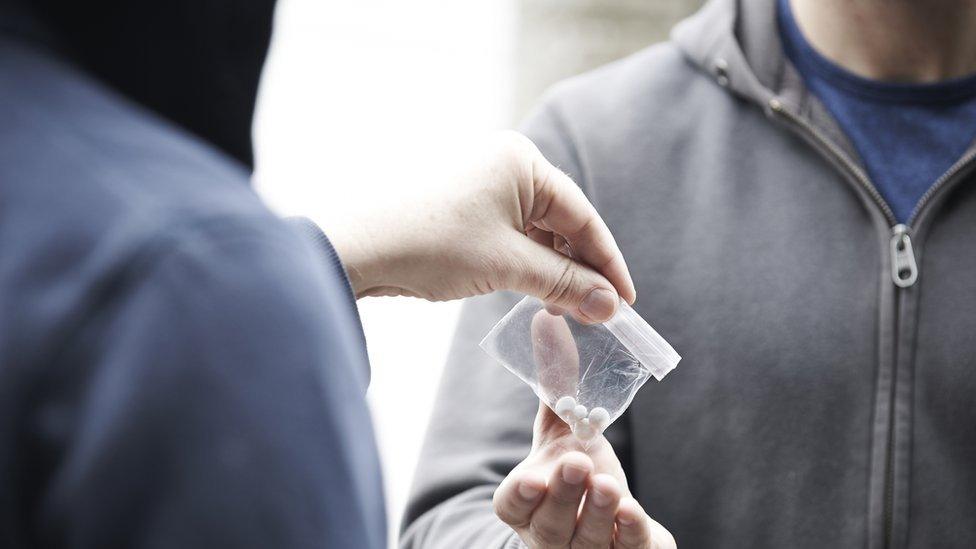Coronavirus: Drug and alcohol referrals down 57% since lockdown, says charity
- Published
"It is different when you're not getting that face-to-face contact"
Drug and alcohol addiction referrals have fallen by 57% during the coronavirus pandemic, according to a charity.
Kaleidoscope said the "significant reduction" came after it closed non-clinical bases and recovery hubs on 18 March.
The charity's chief executive said people who cannot access such help get "exponentially worse".
The Welsh Government said services had "adapted rapidly" during the pandemic.
Kaleidoscope covers the Gwent area, Powys and north Wales, with each region seeing referrals drop.
Comparing drug referrals from 18 March to 30 May in 2019, and the same period this year, it said:
In the Gwent area they dropped 51% from 291 to 143
In Powys they fell 41% from 140 to 83
In north Wales they fell 73% from 106 to 29
There were similar drops in alcohol referrals.
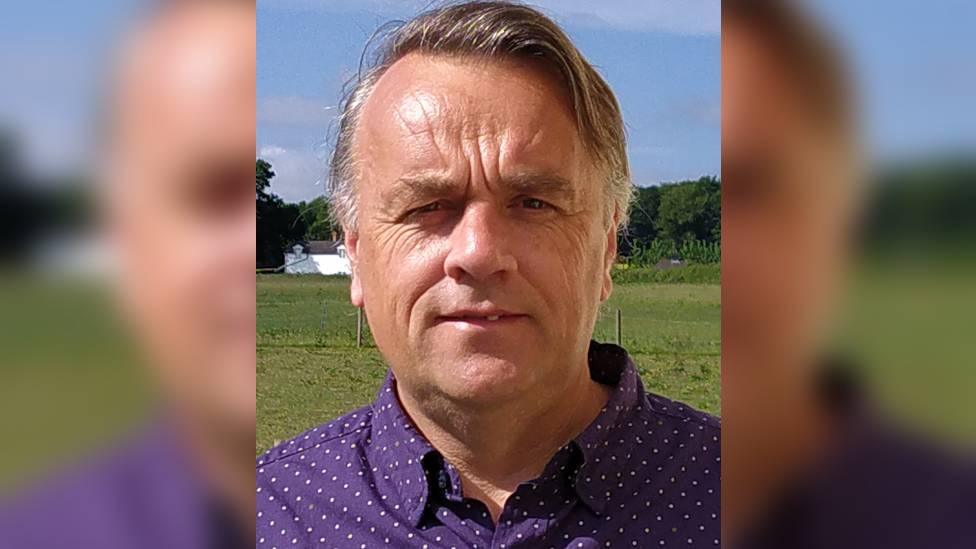
Kaleidoscope boss Martin Blakebrough feared people's problems could get worse
Chief executive Martin Blakebrough said: "With drugs or alcohol, if you're not coming into services those problems get exponentially worse."
It was not just about drug services but ancillary services like hepatitis C vaccinations, Mr Blakebrough said.
"We will see an increase in deaths if we're not careful," he said.
Kaleidoscope and other charities in Wales have changed the way they help people. Changes include video calls, online chats and more phone calls.
Carol Hardy, manager of the Living Room, a charity that helps drug and alcohol addicts in Cardiff, said: "The figures don't surprise me at all. Being dependent, especially on alcohol and drugs, requires a person to isolate themselves. It's the isolation and loneliness - that's what the addiction wants.
"It broke my heart when the lockdown came in March because this is going to be very difficult for people and that's what has happened.
Rachel Cook from Welshpool has had a drug problem for 20 years.
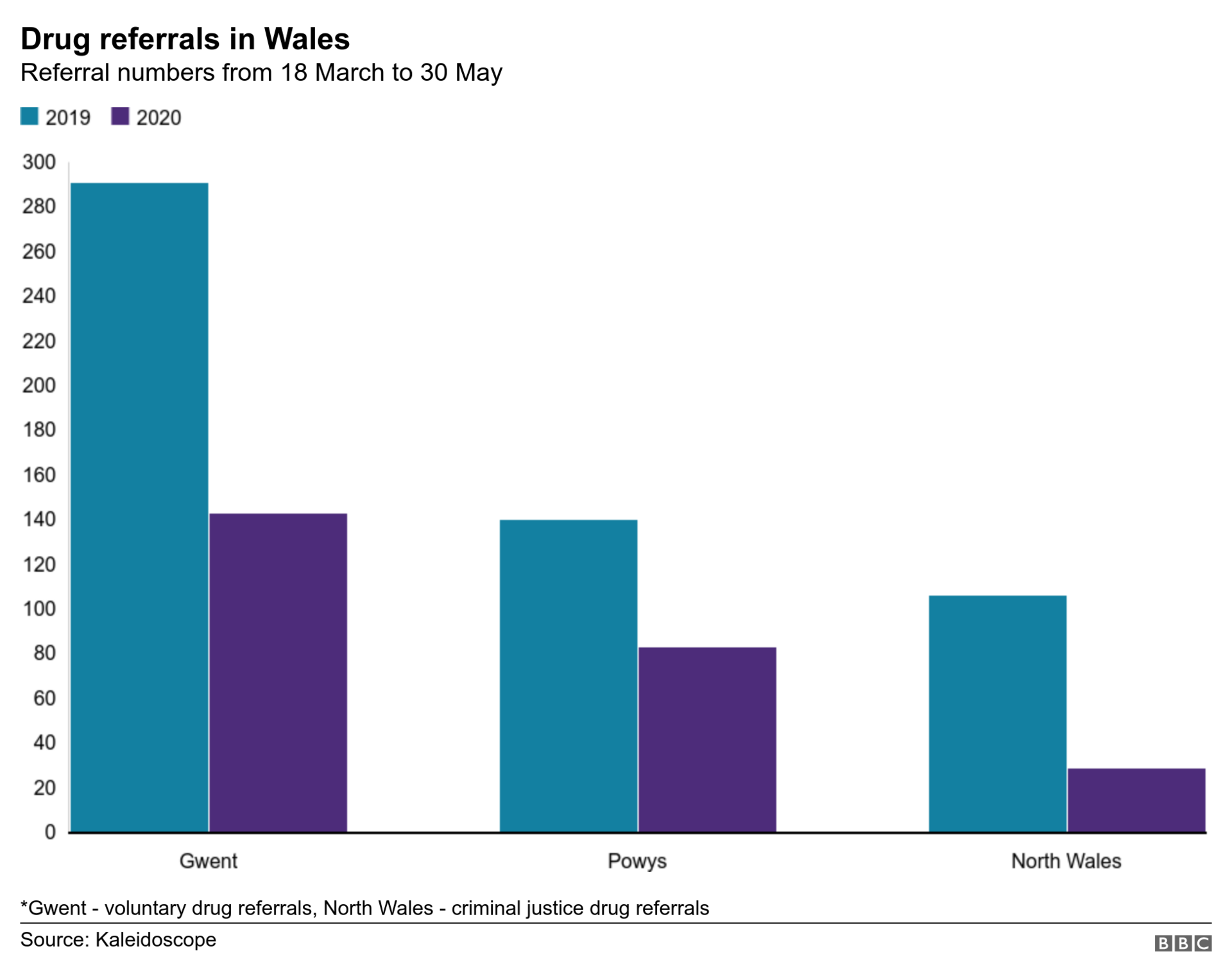
The 44-year-old has relapsed four times but has been drug and alcohol-free for a year and a half since getting help four years ago.
She said she had found not having face-to-face meetings "very difficult".
"It is different when you're not getting that face-to-face contact, you're not getting that cup of tea when you get in the door, when you're not sitting down in the waiting room chatting to other people in recovery," she said.
Rachel has been volunteering with Kaleidoscope for two years supporting others with their problems.
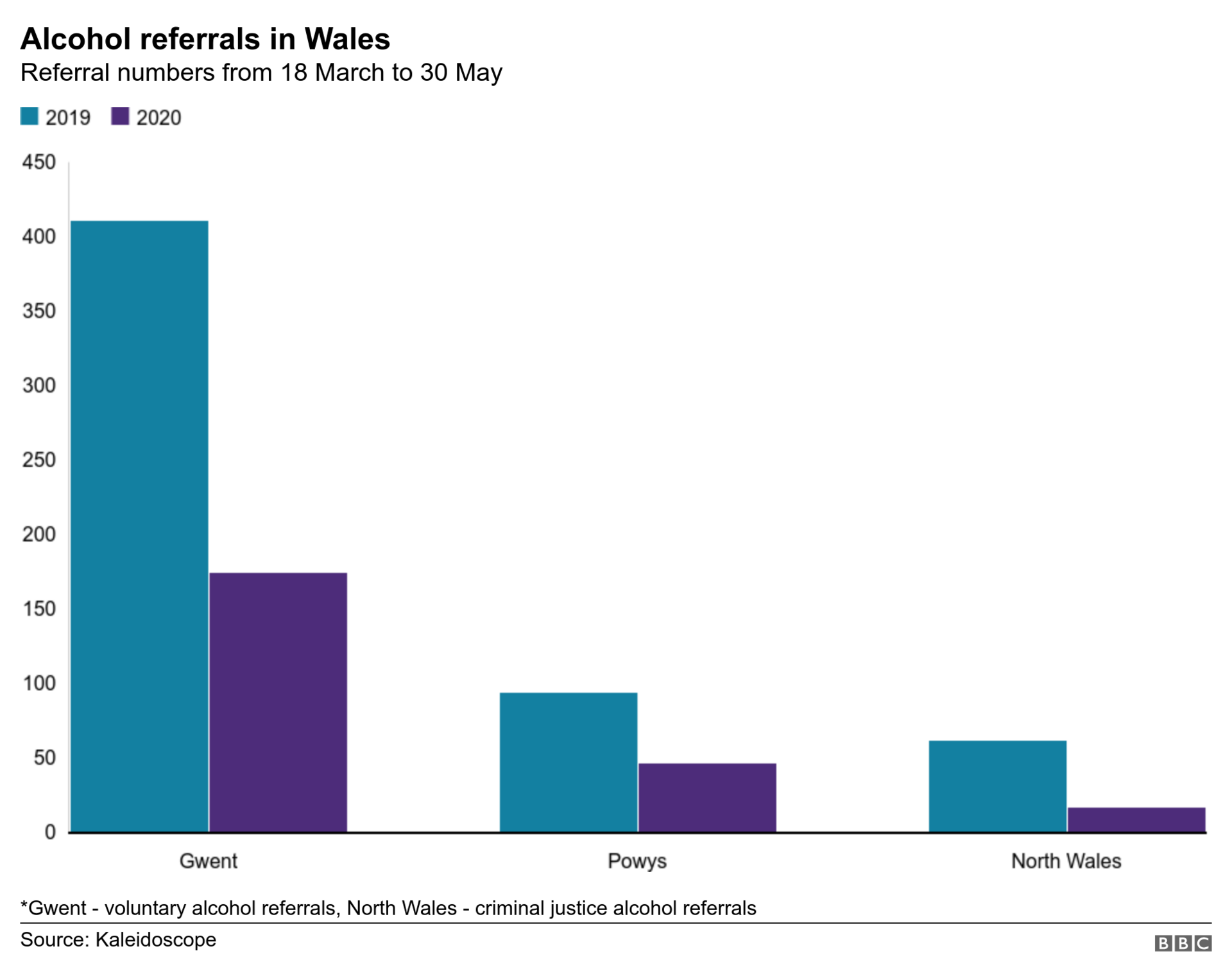
"Face-to-face is so important - you can tell so much about somebody by just looking at them," she said.
"It's so easy to just say I'm fine, I'm doing okay, when you're just absolutely falling apart."
Wales's drug and alcohol helpline, Dan 24/7, saw a fall in calls in the first few weeks of lockdown.
In April 2019, 439 people called. In April this year, 300 rang.
Helpline services manager Luke Ogden said: "We hear a lot on the news about how services, businesses and places of work have to cease operation, and it may be that people think this is the case with health-related services."
He said help was still available for anyone in Wales.
Dan 24/7 said during May it had experienced an increase in calls, with about 120 more than in April.
Most concerned alcohol, cocaine, and cannabis.
Experts said the drop in referrals was worrying.
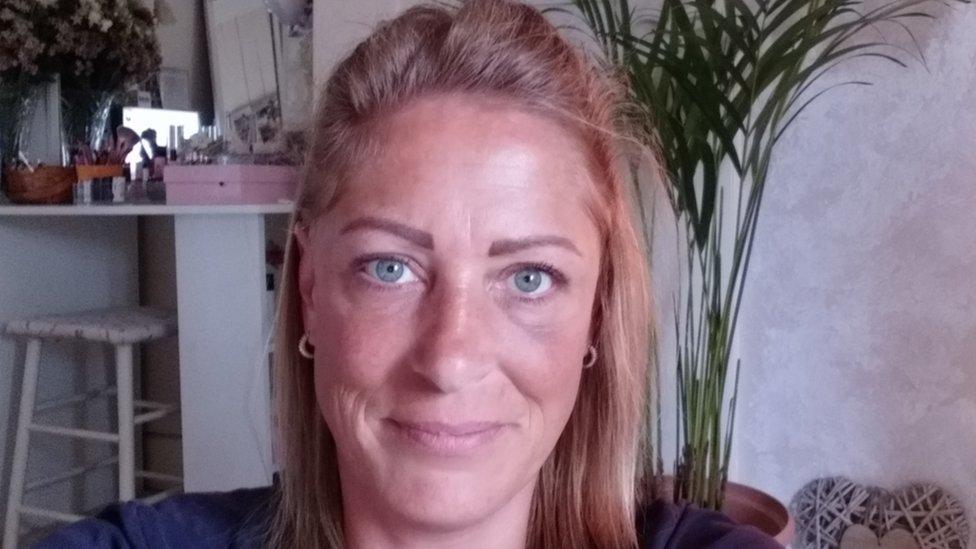
Rachel Cook said face-to-face contact was important in helping treat people with addictions
There were also concerns about the impact of social distancing on services.
Retired clinical psychologist Richard Pates spent 25 years in the drug and alcohol field.
The former chairman of the Welsh advisory panel on substance misuse said: "One of the things that good addiction services can offer is that trust and building up a relationship with people.
"It is very hard to build up a relationship entirely on the phone."
So much relied on non-verbal cues, he said.
"Those are very difficult to replicate," he said.
The Duchess of Cambridge spoke to patients of addiction treatment centre
David Nutt of Imperial College London is chairman of charity Drug Science.
He said: "The first thing is, to be online, you've got to have access to this kind of equipment, and that's not universal.
"The second thing is, if you are in shared accommodation, it can be quite embarrassing to be having these kind of conversations with other people sitting around listening to you.
"Third, we don't know whether online interviews, online therapy, actually works."
'Turned to alcohol'
There are fears that with less treatment available, and fewer people in treatment, more will go back to old habits.
That could mean more deaths.
Prof Nutt expected people to return to "street use".
"They'll have their dealers coming and they'll be slipping off the methadone back onto the heroin or even worse, the fentanyl," he said.
"We are going to find a lot of them will have turned to alcohol because that's easy to get, and they'll have been dampening down their withdrawal and their anxieties with alcohol."
He expected "a small blip" in deaths.

A SIMPLE GUIDE: What are the symptoms?
AVOIDING CONTACT: Should I self-isolate?
VIDEO: The 20-second hand wash
MAPS AND CHARTS: Visual guide to the outbreak

The Welsh Government has invested almost £53m this financial year in drug and alcohol services.
Services had "adapted rapidly" during the pandemic, it said, with online consultations and psychological support available.
It said Wales had become the first UK nation to offer injectable slow-release buprenorphine - a treatment for opioid misuse - to reduce the need for daily supervised visits to pharmacies and clinics.
"Inpatient detox services are also returning to normal capacity," a spokesman said.
"Guidance has been developed to support substance misuse services and people working with vulnerable populations.
"The national helpline Dan 24/7 has continued to provide updates about coronavirus and details of services available."
- Published27 May 2020
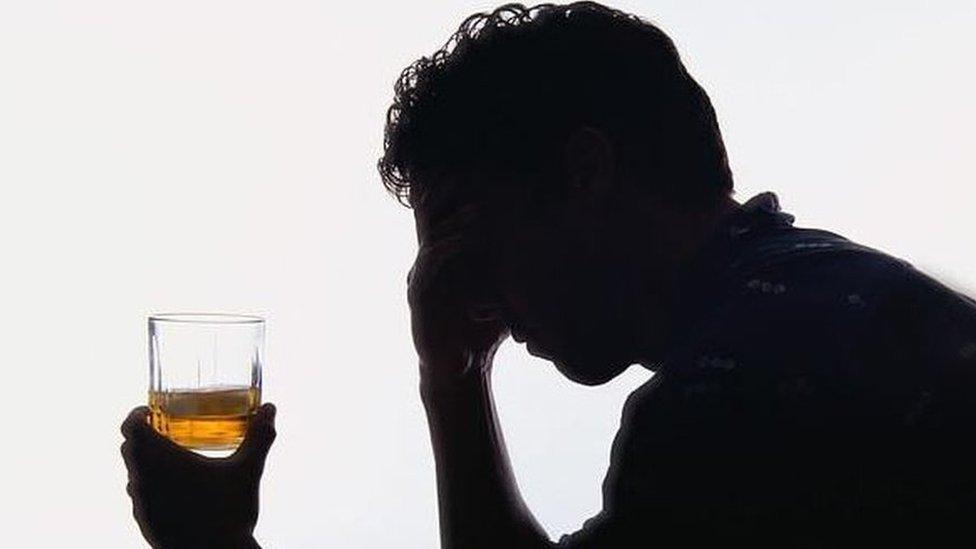
- Published8 December 2019
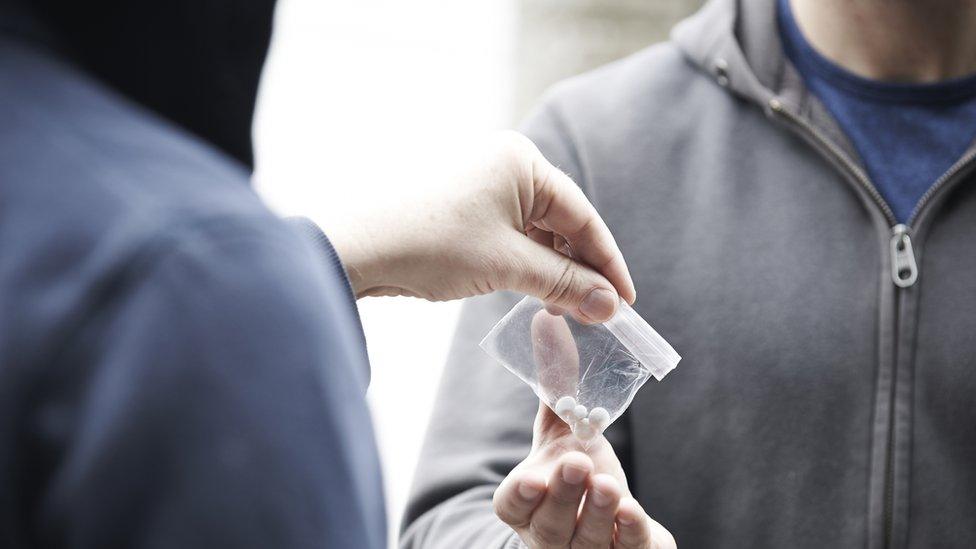
- Published16 September 2019
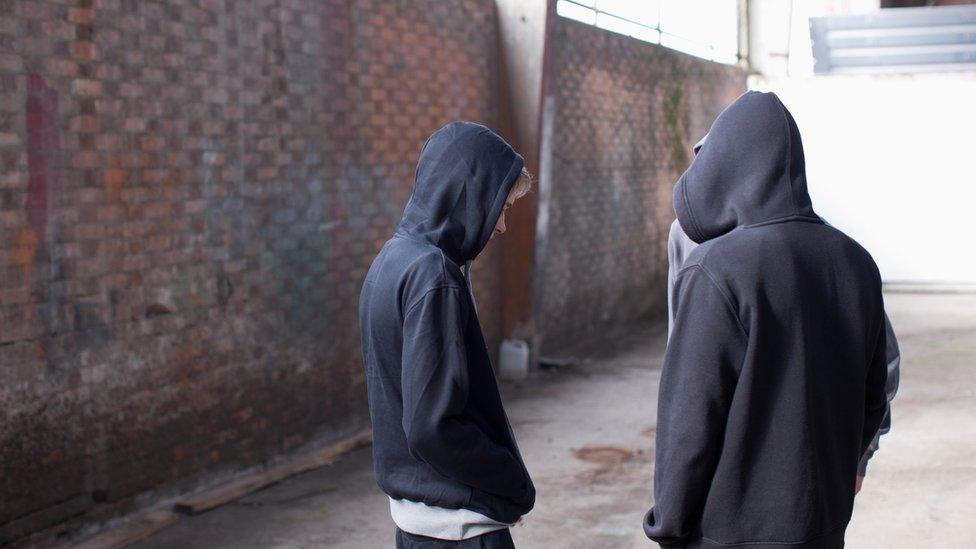
- Published13 February 2020
